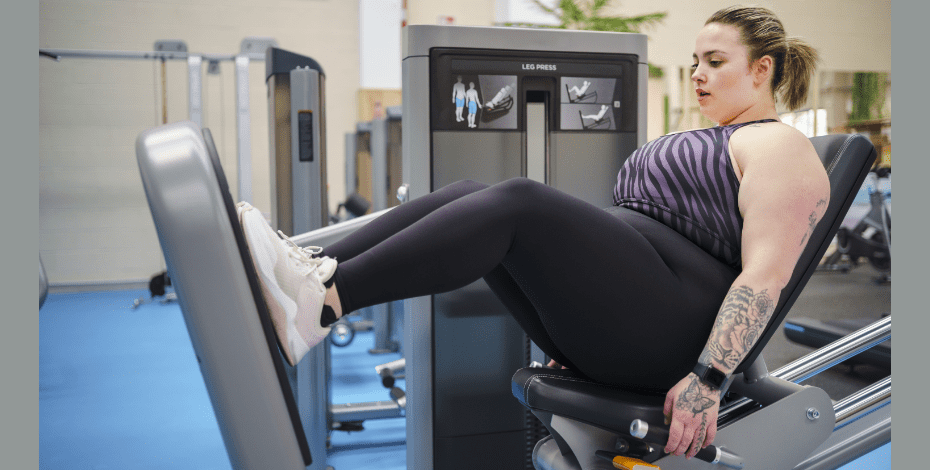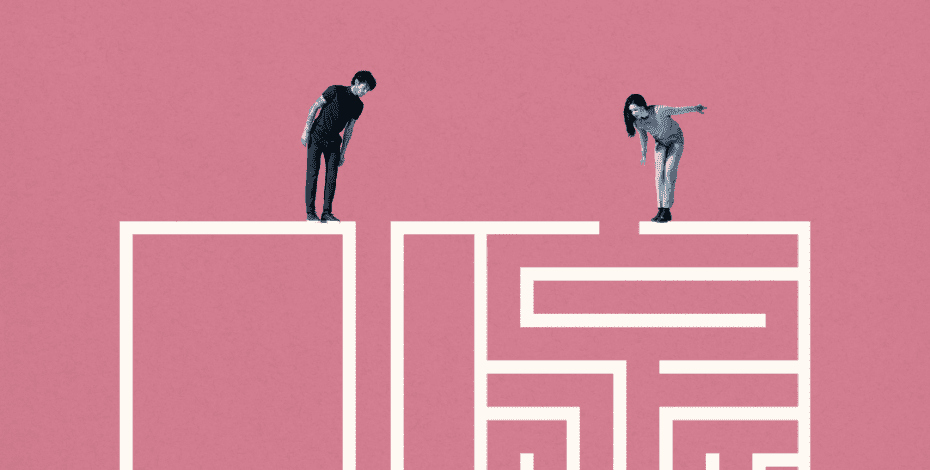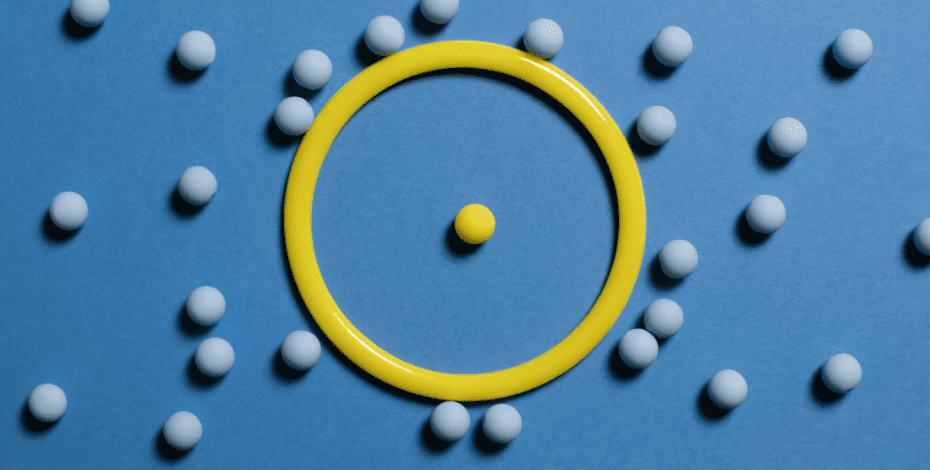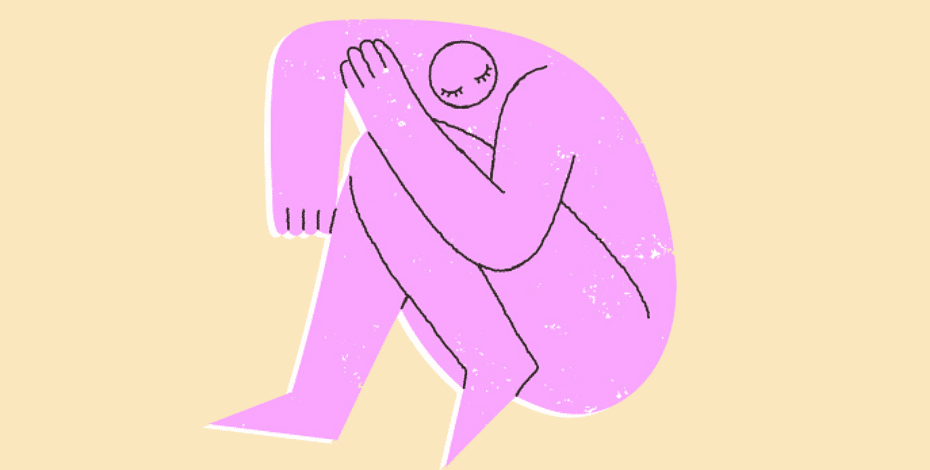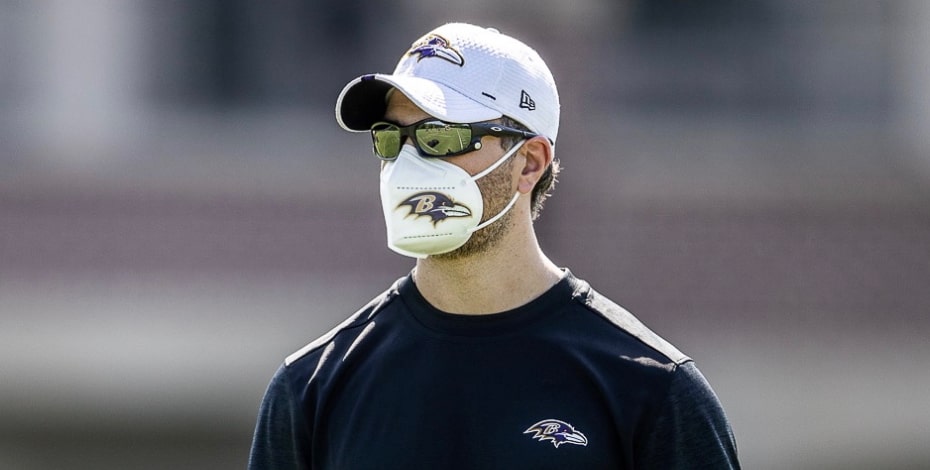
They’re Raven about Sam

APA Sports Physiotherapist Sam Rosengarten’s passion and skillsets have seen him seize the day in elite sport, here and overseas.
Sam Rosengarten is entering his fourth season helping shape and innovate sports medicine and performance within one of the biggest sporting machines in the world, the National Football League (NFL) in the United States.
Sam joined the NFL’s Baltimore Ravens in 2017 after a two-year position as a physiotherapist and head of injury prevention with National Hockey League ice hockey club the Buffalo Sabres.
The NFL club was impressed with his ability to develop and implement player injury- prevention programs using technology to track and monitor physiology and biomechanical components.
Years after making the shift to American pro-football, Sam remains in awe of the spectacle and hype that envelops the national sport.
‘The intensity is at a level I had never experienced before, the noise, the fanfare, the engagement. If ever there was a sport that came filled with passion, pride, colour and movement, this is it,’ he says.
‘On Friday before the weekend game, everyone in Baltimore wears the Ravens logo and team colours with pride and the city lights up purple—there’s nothing like it, it’s just amazing. '
Sam’s skillset is unique to the sport and even though his job title comes under coaching (he is called a coaching analyst), he will always identify as a physiotherapist and is keen to have the profession’s name recognised within the US.
‘Technically I’m employed as a coach, so my office is up with the coaches, and I have a treatment area in the medical room where I treat alongside the athletic trainers,’ Sam says.
‘A big part of my role is being able to interpret how the players are performing day to day, whether being a practice or game. This information is then provided to the football coaches to assist in getting the best out of the athletes.’
Each pre-season the club starts with 90 athletes on its player list. By season proper it’s at 53, plus a contracted 10-member practice squad.
Sam’s goal is to ensure each athlete remains in peak physical performance throughout the year, while highlighting any potential weaknesses that could lead to injury, especially during the gruelling 16-week season, which kicks off in early September.
The former Victoria Branch Council member (he proudly retains his APA membership), who is an honorary fellow of University of Melbourne, began his career in physiotherapy in cricket and the Australian Football League (AFL).
His first elite sports role was in Manchester with Lancashire County Cricket Club. He then spent nearly a decade in the AFL, the bulk of his time with the Western Bulldogs and Carlton football clubs, while operating three sports medicine clinics in Melbourne.
He also toured with the Australian International Rules team to Ireland.
For Sam, seizing the opportunity within the NFL has not been without setting goals and tackling challenges. Achieving success, he says, is about knowing your business, having a willingness to innovate and a drive to achieve results.
‘I have always had a passion for utilising technology and finding new ways to assess and monitor.
'As a physiotherapist in elite sport, I was very lucky to have opportunities at Carlton where I had very good funding and a very supportive boss that enabled me to put together an injury-prevention program that was successful.
‘Similarly here, Baltimore has really invested in the ideas that I bring to the table … and my skillset with the hands-on treatment being very different to what they are used to over here.’
Public scrutiny adds to the intensity experienced on and off field.
‘With the AFL, there are 12 teams in Melbourne, but here, there’s only one team in Baltimore and everybody’s looking at you.
This added pressure is at times what drives both players and coaches to perform at their best.’
When working in New York with the Sabres, Sam had to prove his advanced clinical knowledge and skills in an exam setting to achieve the board certification and registration as a physical therapist.
His biggest challenge, however, came from within the team. Some athletes were initially reluctant to take on new ideas, and because the proposed program was new, that meant ‘starting from scratch’ in defining normative values and the validity of using specific technology and protocols within this environment.
‘It has been humbling going from a situation where everybody knows and accepts you to being in a position of slowly building a reputation within the team and earning the trust of the athletes.’
In comparing AFL and NFL, Sam says both leagues come with equal demands on players, and expectations are high. However, in the US, it’s a billion-dollar industry with no room for error or complacency.
‘Guaranteed money is not common, so the guys are fighting every day to keep their careers alive. It’s a contact sport and injuries are part of the game, so anything they can do to try and keep their career rolling is important to them.
'There’s no reserves grade competition either to catch them. They know that if you’re not picked for the team, you just don’t play.’
Sam’s personality and values of treating everyone equally resonates positively within the club, with all levels of seniority seeking his clinical advice and treatment.
‘I give everybody the same amount of attention and time and care. When I started I didn’t know who anyone was, so there was no bias towards more senior players or the adherence to the normal internal hierarchy of the team, but I still try to take that same approach today.’
His professional reputation for achieving results has equally grown within the league’s medical community.
This year, he was invited to present his concepts on athlete management and injury prevention to the NFL Physician Society at the annual NFL Scouting Combine. The Combine is the biggest recruiting event on the NFL calendar, and the society’s members provide medical and surgical care to the game’s athletes across all teams.
‘I was proud to be invited to speak to the society about best practice. However, competitive advantage is very closely guarded here, so there is a real caution about sharing anything proprietary.
'This also restricts publishing of research, but I look at it as trade off—I‘m very happy that I get the opportunity to do what I do.’
As with other sports and industries globally, COVID-19 has caused disruption within the NFL. Its preseason has been cancelled and a ‘new norm’ has dawned.
Teams test players, staff and internal and visiting media daily. There are strict protocols for cleaning and physical distancing at each club’s facilities. Masks are also mandatory.
Proximity sensors strapped to wrists record each staff member’s location. The sensor is set off if the allowed physical distancing space is breached with an uncredentialled person, and there are restrictions about where people can go in the building.
Even at home Sam’s family has to remain vigilant as the club works to protect the health and wellbeing of all involved.
‘For months now there’s been a limit to where we can go and who we can see, so I empathise with Melbourne being into lockdown.’
Sam, his wife and daughter have been in the US since 2015.
‘I couldn’t have ever made this transition without the support from my wife Nina and daughter Mia. They made it possible.’
As a Melburnian, he grew up playing cricket and Australian Rules football—two sports his US colleagues either find ‘hilarious or ludicrous’.
‘I do like to jokingly remind them that when we play a contact sport, we don’t wear pads,’ he laughs.
Experience of running and accurately kicking a football has provided Sam with an advantage. He even subbed in as backup punter at a recent Ravens practice session.
‘The guys that initially gravitated to me were the kicker and punter, the two guys that kick the ball. Having someone who specialises in kicking mechanics and the lower limb is not particularly common within teams,’ he says.
‘At one early training session, the ball rolled over to me and I scooped it up and kicked it straight back.
'It was second nature, yet everybody turned and looked at me, almost aghast at what this guy had just done. They hadn’t seen anyone do that before, but now it’s become a fun thing to do at the start of training.’
He says the physicality of the sport, coupled with the size of the players (many are more than 200cm and upwards of 140kg) makes for an impressive sight and sound when working a game from the sidelines.
‘It’s amazing just how athletic and how big they are—they are phenomenal athletes. I remember the noise and almost-violence from my first game.
'They are padded up, which makes them even bigger, and when they clash the noise is incredible.’
Treating players is physical work and Sam trains every day to keep his body strong.
‘The coaching staff train together two to three times a week; and when I’m not working with the players, I’m in the gym ensuring I can keep up with the physical demands of my job.’
Even after living in the US for five years, it wasn’t until moving to Baltimore that Sam has gained a deeper understanding of racial tensions within the country.
Ongoing protests over unequal treatment of black Americans and police brutality has given rise to the Black Lives Matter movement, which has become a key issue in the lead up to the US Election in November.
‘Baltimore is a very diverse town and to hear first-hand stories from players, coaches, friends and neighbours of how some people adapt their lives because of their skin colour is very sad.
'While it has been an eye-opening experience, it’s also been a wonderful experience for me and my family. We have settled into Baltimore, it has become our home, and we want nothing but the best for everyone who lives here.’
© Copyright 2024 by Australian Physiotherapy Association. All rights reserved.


